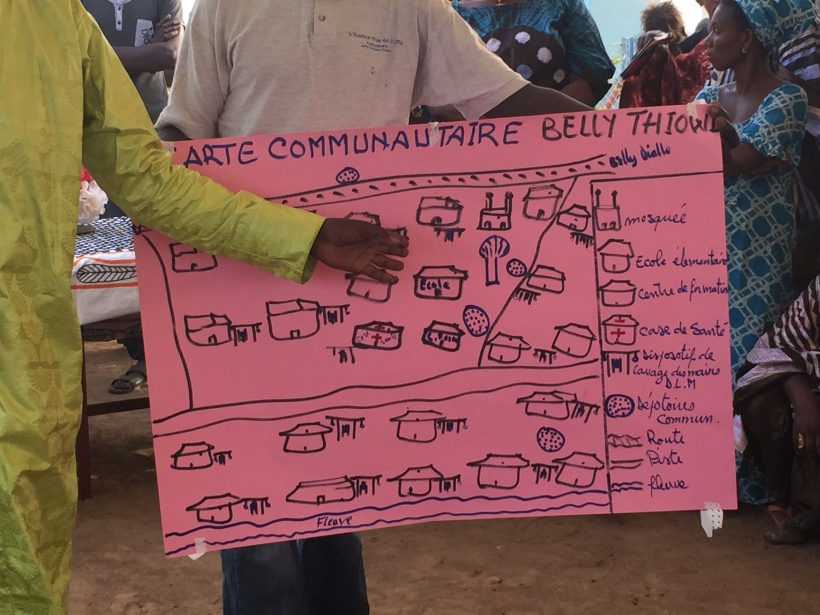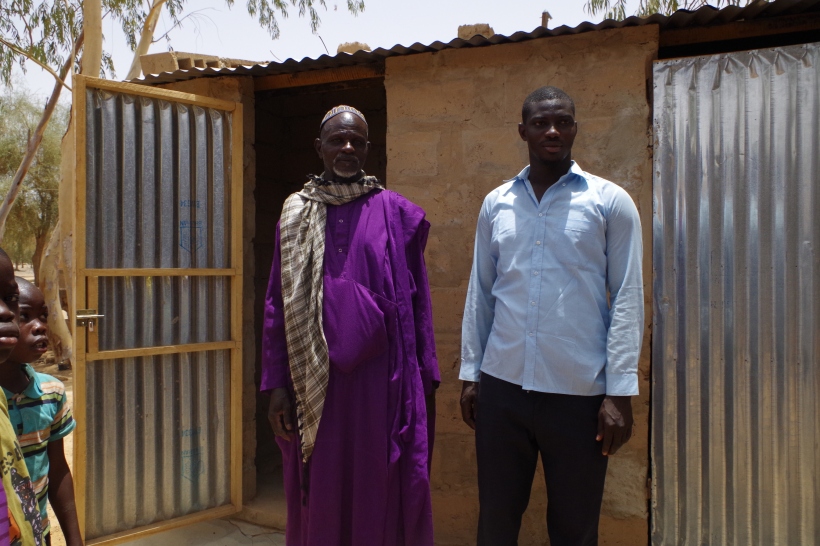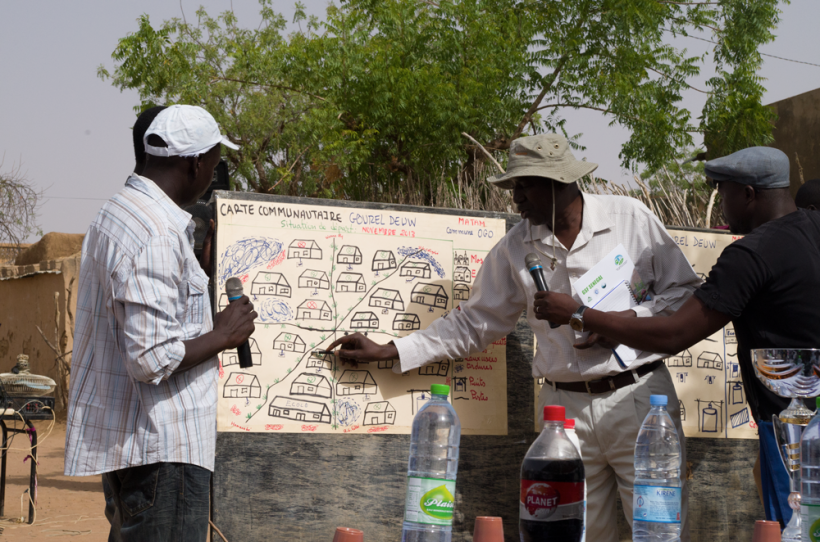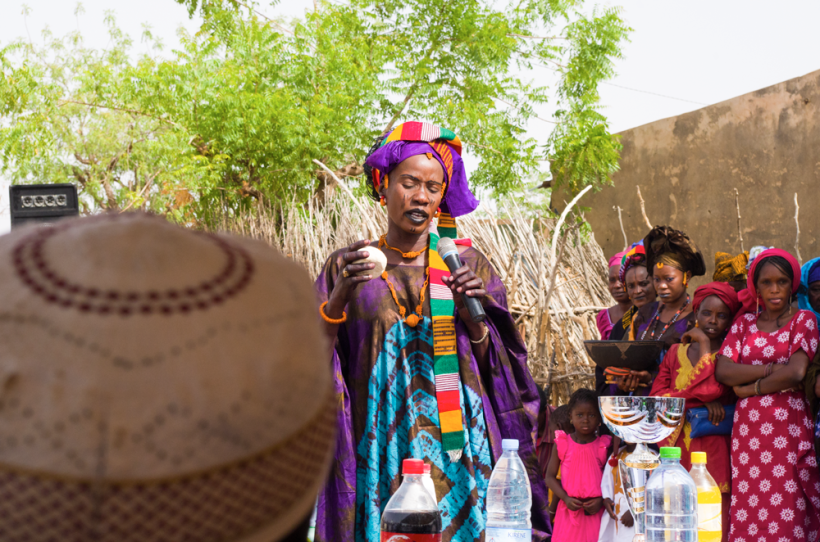By Alma Felic and Okechukwu Umelo
Last week, the Water Supply and Sanitation Collaborative Council (WSSCC) family, including Global Sanitation Fund (GSF) programme managers and WSSCC National Coordinators, visited rural communities in the region of Matam, Senegal. It was an unprecedented opportunity to engage with communities and hear about their successes and challenges related to water, sanitation and hygiene. Browse through the photos and captions below to learn more.
Achieving ODF status
The village of Belly Thiowi became open-defecation free (ODF) thanks to efforts led by communities and supported by GSF implementing agencies through behavior change approaches. The first photo shows the situation prior to reaching ODF status – multiple defecation zones are drawn in red between houses and trees. The second photo shows the community after achieving ODF status, with no visible open defecation zones.
Young members of the community are activated to learn and build
Mbaye is the leader of a youth group in the village Agnam Goly, a community of 198 households that achieved the open-defecation free status in 2013. After a Community-Led Total Sanitation triggering by the Global Sanitation Fund, Mbaye decided to make the young men in his community active members in the process of achieving full sanitation coverage. During a group training with local masons, Mbaye and his peers acquired the technical skills to build latrines. As a result of their willingness to learn and build, 11 additional households in the village now have access to safe and sustainable sanitation facilities.
Women’s participation
Throughout the villages we visited in Matam, we found the level of participation of women in improving sanitation and hygiene to be high. Women are driving change and are heavily involved in post-ODF activities through their positions in sanitation committees.
Open-defecation free communities understand the importance of waste management
In addition to the understanding the importance of regular handwashing and the sustainable use of sanitation facilities, the Global Sanitation Fund team observed another important effect of the local ODF movement: the great cleanliness of shared community spaces. A particular example of this change in attitude was presented by the community of Sinthiou Garba Gourel Dow, which, in addition to creating sanitation and handwashing facilities for every household, started managing the growing waste problem by dividing up roles in the community and allocating a safe space outside the residential areas where the waste was treated and safely removed.
Community participation
All members of the community, including children and the elderly, have played an active role in helping villages in Matam achieve and maintain ODF status, improving sanitation and hygiene in the process.
Handwashing saves lives – and empowers women to generate income
Seynabou, a young woman living in a community of 137 households triggered by the Global Sanitation Fund in Senegal, is the Chair of the local committee in the village of Wassacode, which celebrated its open-defecation free status in 2014. Through active participation and training in the GSF sanitation programme, the women of the community are making villagers understand the importance of regular handwashing as a simple and efficient practice that prevents the spread of the diarrhoeal disease and other diseases linked to fecal-oral contamination. Today, Seynabou and other women support their village and other communities through the local production of soap, which not only leverages their personal income, but also creates additional resources for the local community fund (Fr: Caisse de solidarité).
Find out all about the Global Sanitation Fund programme in Senegal on the WSSCC website.














May 27, 2015 at 7:23 am
Reblogged this on Sanitation Updates.